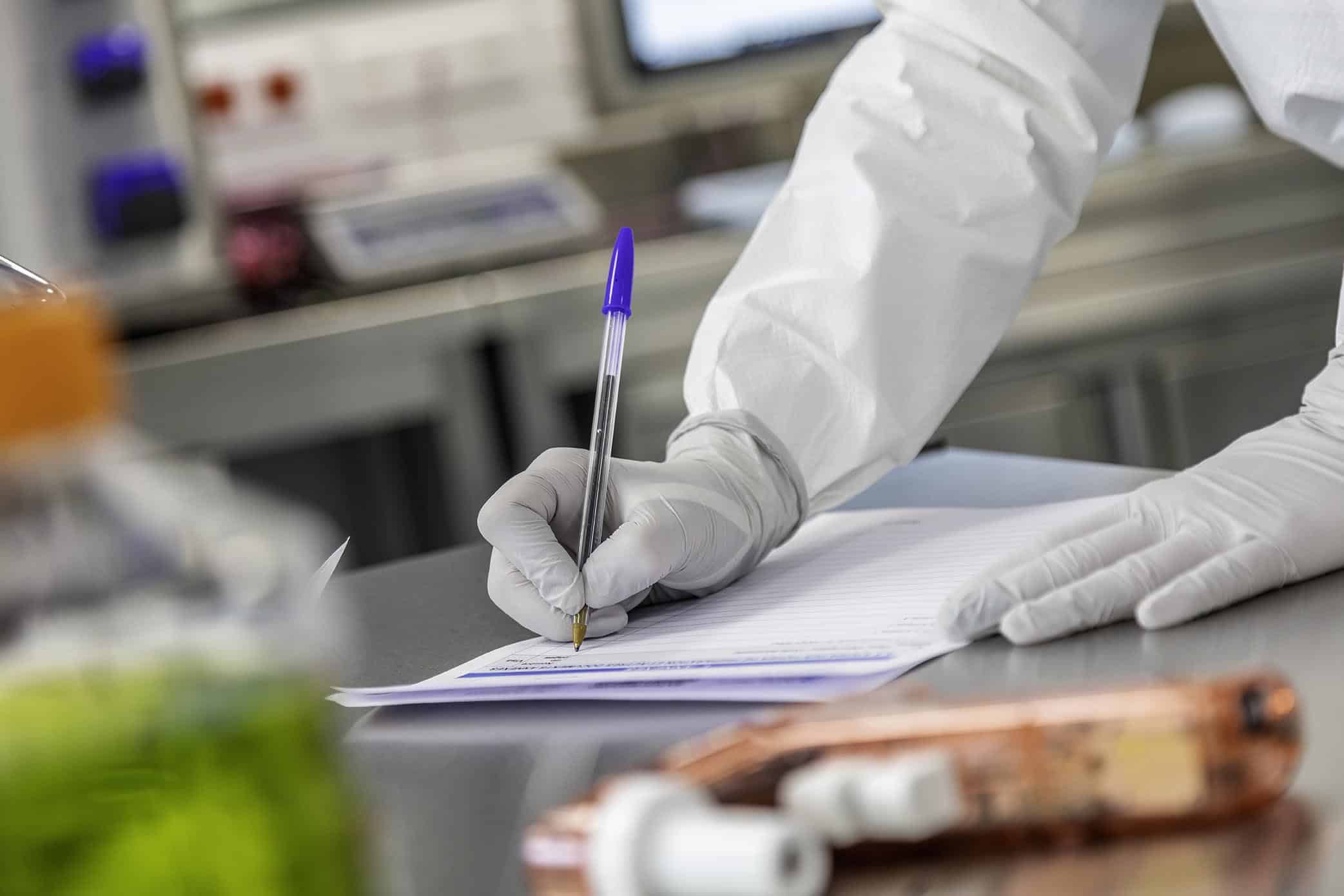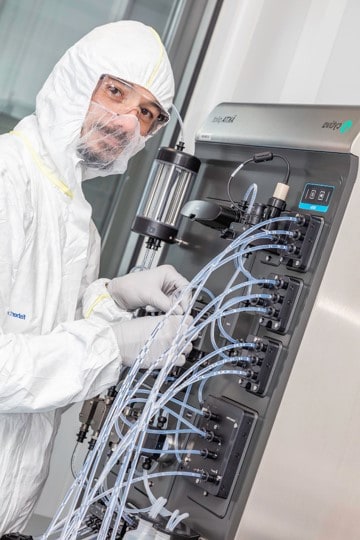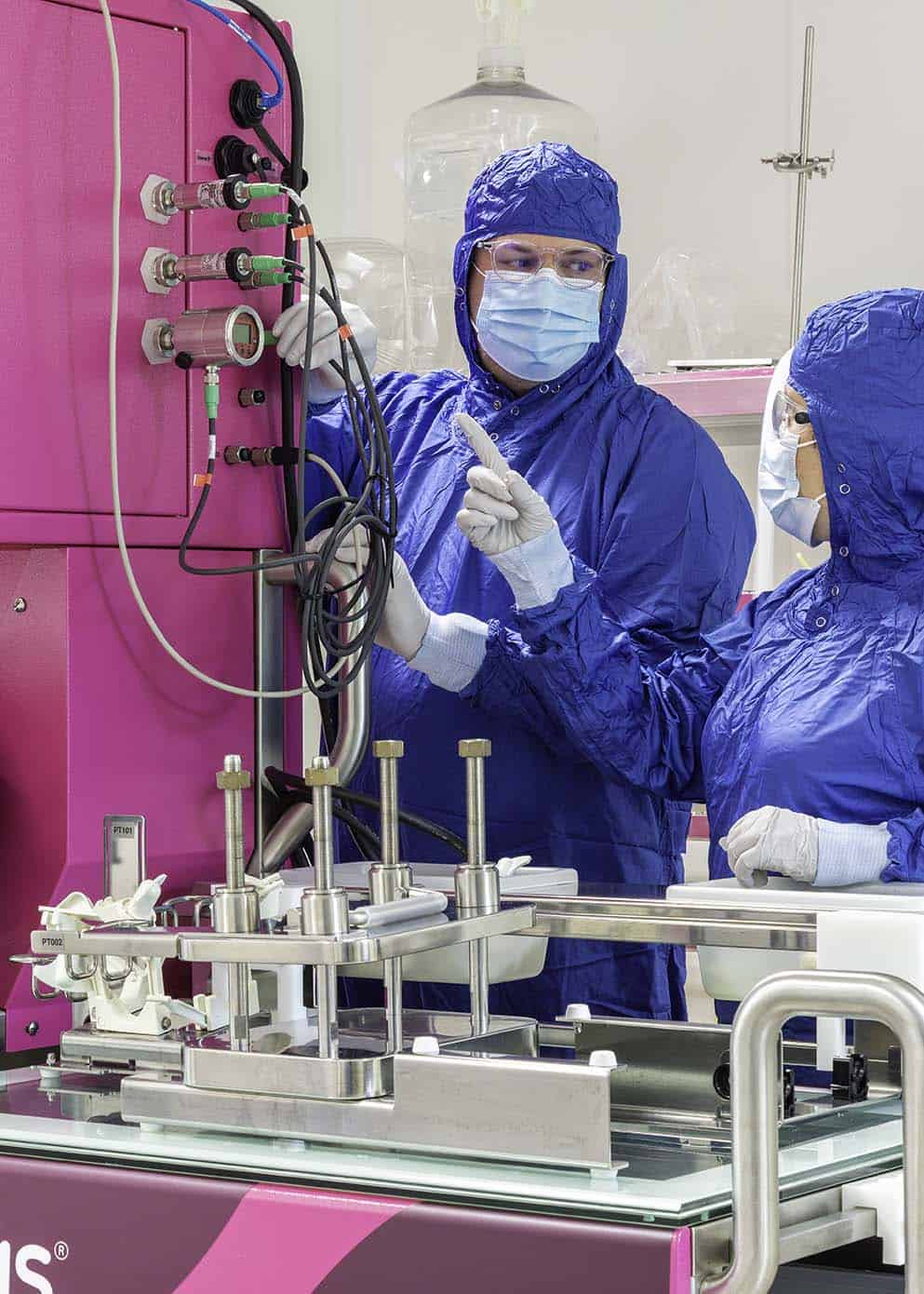Mammalian Manufacturing of Biologics
With our integrated process development and GMP manufacturing services, we can support the development of any biologic in mammalian hosts.
Comprehensive mammalian CDMO services dedicated to biologics production
With our process development expertise combined with versatile GMP facilities, we will help you bring your therapeutic candidate to clinics.

Our services span the whole value chain – from R&D to clinics – and can be provided as standalone or as part of a comprehensive process development and manufacturing package.
- Drug substance GMP manufacturing
- Drug product GMP manufacturing
- Regulatory filing support
Expert quality assurance & regulatory support
With over 15 years’ experience in mammalian GMP manufacturing of a range of biomolecules, the GTP Bioways team is uniquely placed to support your project.
Mindful of your programme objectives and process requirements, our QA team will work closely with our development and manufacturing teams to ensure the highest quality at every step.
Thanks to their longstanding experience of biotherapeutics development for pharmaceutical companies, our QA experts are familiar with IMPD/IND application filings and ready to assist you with completing these regulatory documents.

Frequently Asked Questions (FAQ) about monoclonal antibodies

What is a recombinant antibody?
A recombinant antibody is a monoclonal antibody produced in vitro by genetic engineering techniques. The production is achieved by inserting the genes coding for the antibody into a host cell that will act as a factory and produce large quantities of the antibody.
What are the main applications of monoclonal antibodies?
Monoclonal antibodies (mAbs) recognize and bind to specific targets such as antigens on the surface of targeted cells.
Some of the main applications of monoclonal antibodies are:
- Cancer therapy: monoclonal antibodies can be used to treat cancer by targeting specific antigens on cancer cells, which can help kill the cancer cell or prevent their growth.
- Autoimmune diseases and Infectious diseases (such as rheumatoid arthritis or COVID-19): monoclonal antibodies can be used to treat many pathologies by targeting specific proteins that contribute to the diseases.
- Diagnosis: monoclonal antibodies can be used in diagnosis tests to detect specific proteins or other molecules in blood or other body fluids.
Discover more applications of recombinant monoclonal antibodies in our dedicated blog post: What are monoclonal antibodies and their therapeutic applications?
What are the benefits of using monoclonal antibodies?
From a medical point of view, some of the main benefits of developing mAb-based therapies are:
- Specificity: Monoclonal antibodies are highly specific and can be designed to target a particular antigen or cell type, making them useful in many applications.
- Low toxicity: Monoclonal antibodies are generally well-tolerated and have a low risk of side effects compared to traditional chemotherapies.
- Long half-life: Monoclonal antibodies have a longer half-life (from few days to several weeks) in the body than traditional drugs, which can reduce the frequency of and improve patient compliance.
How are monoclonal antibodies produced?
Recombinant antibodies are generated in vitro using an expression host (a cell used as a factory) that can yield high quantities. Mammalian systems, particularly Chinese Hamster Ovary (CHO) or human embryonic kidney (HEK) cell lines, are the preferred hosts for producing antibodies. Monoclonal antibodies can be expressed either transiently or stably by the host cells. Transient production is useful to obtain small amounts of antibody within short timelines. When large amounts are needed or when a therapeutic application is considered, a stable cell line is developed to ensure reproducible and GMP compliant production of the antibody.
What is the difference between transient and stable expression?
Transient and stable expression are two methods for producing recombinant proteins, including monoclonal antibodies, using mammalian cells as expression hosts.
- Transient expression refers to a short-term process where plasmid DNA containing the gene of interest is introduced into the cells, and the protein is expressed for a limited period, typically a few days. Transient expression is suitable for small-scale production or quick screening of various expression constructs.
- Stable expression involves the integration of the gene of interest into the host cell genome, resulting in long-term expression of the protein. A stable cell line can be used for larger-scale production of recombinant proteins, including monoclonal antibodies, for therapeutic or commercial purposes. Developing a stable cell line requires more time and effort for the selection of and hyper-producing clone but is compliant with future scale-up and GMP manufacturing of the monoclonal antibody.
What are the ideal expression hosts according to the antibody format?
Several criteria should be considered, such as format of the molecule, final production scale, desired antibody properties, and the intended application. Here are the most commonly used hosts for production of antibody modalities:
- Mammalian cells: Chinese Hamster Ovary (CHO) or Human Embryonic Kidney (HEK) cell lines, are widely used and remain the expression system of choice to produce therapeutic mAbs. This expression system allows to perform post-translational modifications and produce correctly folded and functional full-length antibodies. However, this comes at a price. Cell line development is usually a lengthy process compared to other expression systems. Also, biomass production and protein purification are expensive due to the cost of raw materials and additional activities required to guarantee viral safety of the generated drug substance.
- Bacterial expression systems: Escherichia coli (E. coli) is commonly used for producing small fragments of antibodies that do not require post-translational modifications. Bacterial expression systems are cost-effective and easy to use. Bacterial strains can indeed be generated in a small amount of time, the bacteria grow fast (with a doubling time of 30 min compared to 20 for mammalianh for mammalian cells!), and the cultures can reach high cell density.
- Yeast expression systems: Komagataella phaffii (also known as Pichia pastoris) is often considered as an alternative to bacteria to produce therapeutic antibodies and fragments. Yeast expression systems offer advantages such as low cost, high yield, and fast production times. They can effectively secrete proteins into the culture supernatant, like mammalian cells, which greatly facilitates downstream purification. Strain generation is somewhat longer than in bacteria, though, since it requires screening for hyper-producers but the productivity is usually higher. To date, production of full-length antibodies in pastoris remains challenging. One reason is the peculiar glycosylation profile of proteins produced in this yeast which is often incompatible with therapeutic application of the antibodies.
White paper
A Guide to Smooth CDMO Tech Transfer
The key parameters to be considered while choosing your next CDMO, as well as our tips to assess those parameters, and more!

